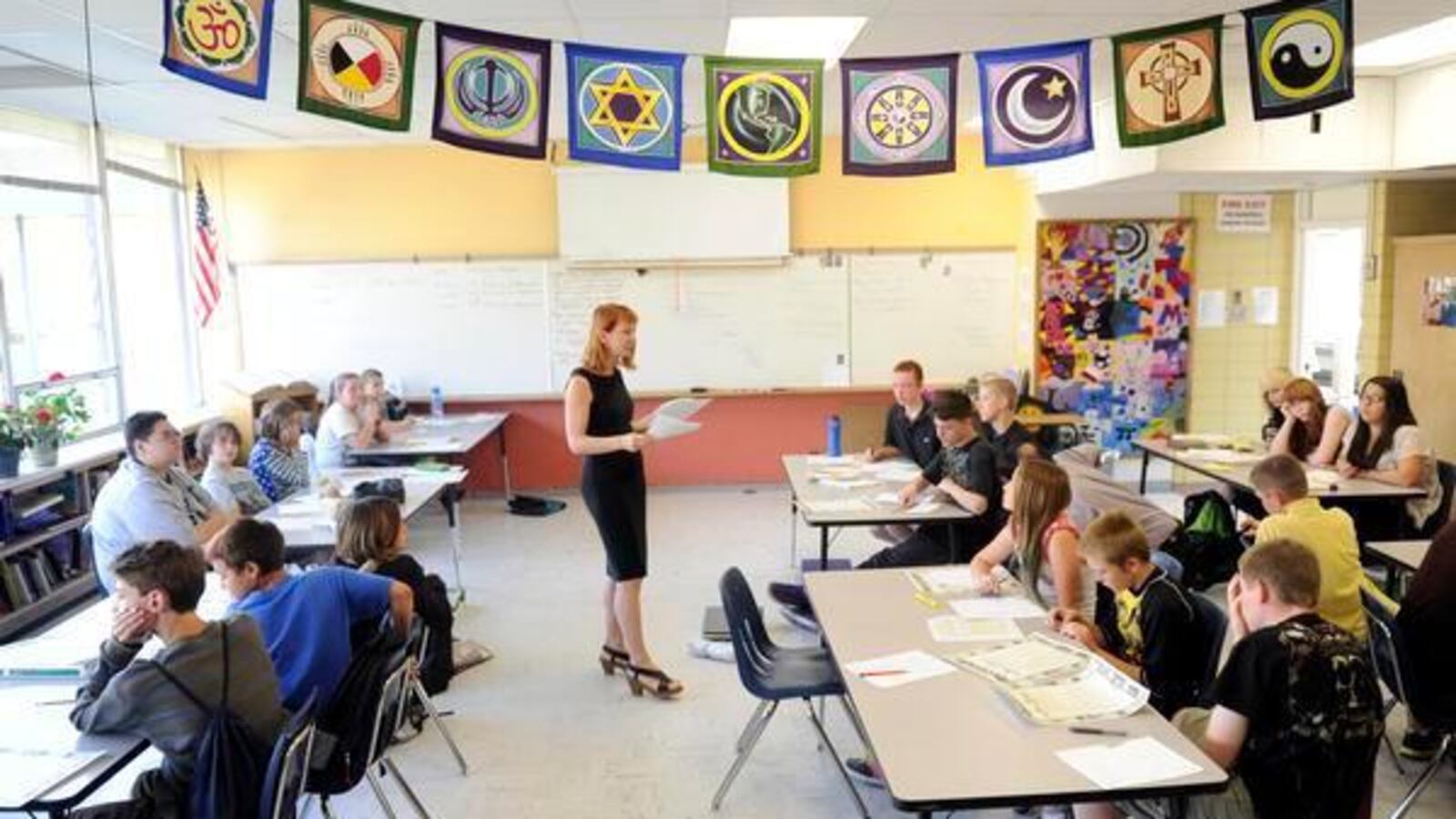Nearly 90% of Colorado voters believe a college education is very or somewhat important, but almost that many — 83% — also believe public schools should be doing more to teach vocational and career skills.
This was one of the greatest areas of agreement in a new survey of attitudes toward education that found Colorado voters divided on school choice and charter schools.
The survey was conducted by Magellan Strategies, a Republican-leaning polling firm based in Louisville. The company paid for the survey and made the results publicly available, as it occasionally does on other issues of public interest.
The survey was based on phone interviews and online surveys with 731 registered voters in Colorado and was conducted in late April and early May. Thirty-nine percent of respondents were unaffiliated, 30% Democrats, and 29% Republican, reflecting Colorado’s party affiliation.
The survey was conducted just before and just after the end of a landmark Democratic-controlled legislative session in which lawmakers delivered on promises to fund full-day kindergarten and increase education spending, even as they also shied away from change on more contentious policy issues.
Overall, a majority of respondents had a favorable view of the public school system and of their local schools, with many citing their own positive experiences.
Two-thirds of respondents said public schools are underfunded — including 87% of Democrats but just 48% of Republicans — and 74% said teachers are underpaid.
At the same time, half of respondents said school districts don’t manage their finances well and that not enough money reaches the classroom.
The findings are notable given that 55% of Colorado voters rejected a tax increase in November that would have raised $1.6 billion for education. At the same time, many local property tax requests were successful.
Ryan Winger, director of data analysis and campaign strategy for Magellan, said the perception that not enough current spending makes it into the classroom or into teachers’ paychecks is one hurdle for those who want to raise taxes for education.
The other is a long-held skepticism that statewide taxes will benefit local schools, even though the state provides more than 60% of K-12 funding.
Voters also had a largely favorable response to kindergarten, with 62% saying the state should pay for full-day kindergarten, regardless of the cost. Republicans were less supportive, though, with 43% supportive and 45% opposed.
Voters were more divided on questions that relate to charter schools and school choice, with notable partisan splits. Forty-three percent of respondents had a favorable opinion of charter schools, compared with 22% with an unfavorable opinion and 35% who were unsure or had no opinion. Democrats were more likely to have an unfavorable opinion — 36% compared with 7% for Republicans and 23% for unaffiliated voters — aligning with declining support for charter schools among white Democrats nationally.
The main reason voters opposed charter schools was the perception that they sapped resources from other public schools while not being responsible for educating all students. Those who had a favorable impression said charter schools have higher academic standards and provide more individualized instruction.
Charter schools are publicly funded but independently run.
Asked about the choice they would make to provide their own child with “the best education possible,” 41% chose a “public school,” meaning a district-run school, 16% chose a charter school, and 28% chose a private school. The survey summary notes that many respondents gave answers that seemed to conflate private and charter schools.
Asked if they would support a voucher program that would allow “parents to allocate public funding toward their child’s education at a private school of their choice, including religiously affiliated private schools,” half of respondents said yes, including 53% of unaffiliated voters and 35% of Democrats.
Colorado’s open enrollment system allows students to enroll in any public school that has space for them and can meet their needs, without paying tuition, but transportation continues to be a major barrier to students exercising that choice. Among all respondents, 47% believed parents have all the freedom they need to choose their child’s school, while 40% believed more needs to be done.
Among parents with a student in their home, a slight majority — 52% — believed they already have the freedom they need.
The largest area of agreement was around vocational education, with more than 80% of men, women, Republicans, Democrats, and all age groups saying schools should do more to prepare students for career and work opportunities.
See the full survey results — including breakdowns by age, geography, gender, and household income — here.

